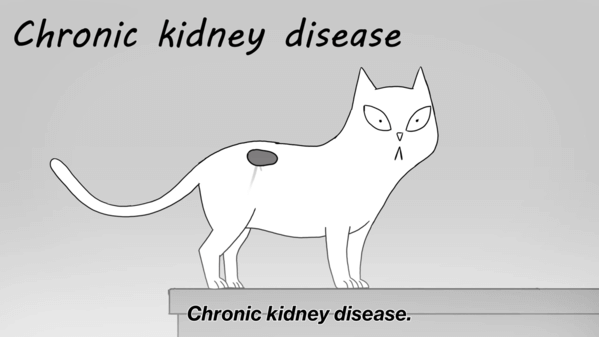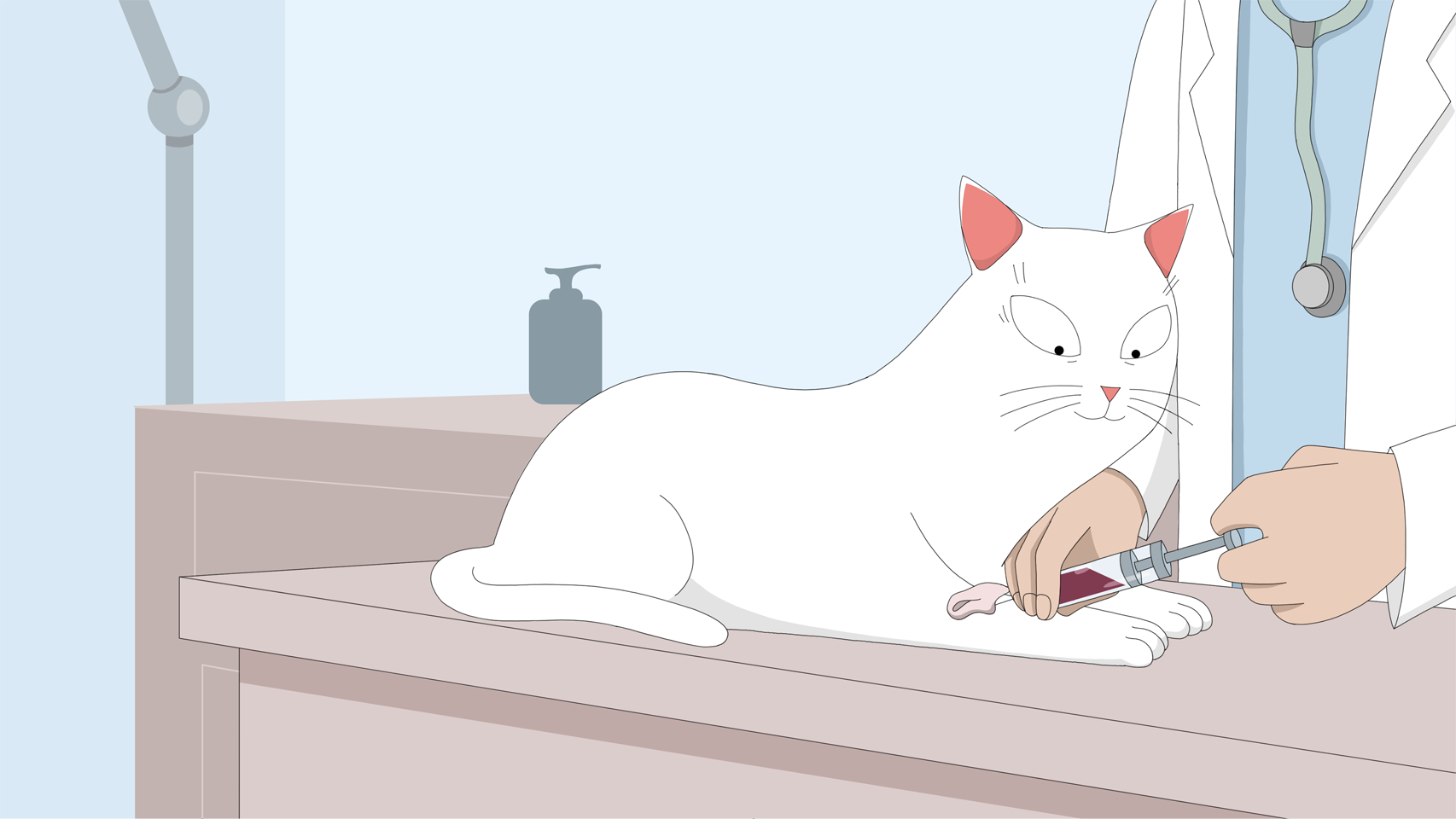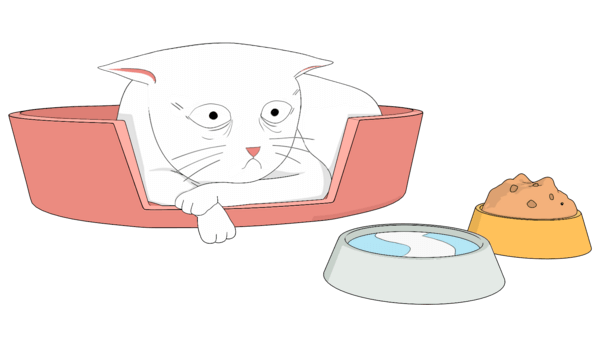
Chronic kidney disease in cats
Chronic kidney disease, or CKD, is a condition that involves long-term damage to the kidneys. Although initially this may not cause significant disease, it is often progressive to the point where there is a loss of normal kidney function leading to an inability to properly eliminate waste products from the body and a loss of other functions.
Kidney damage is usually irreversible and frequently progressive, with clinical signs usually manifesting when over two-thirds to a three-quarters of kidney function has been lost.
CKD is commonly seen in older cats, affecting up to 80% of senior animals (those aged 11 years and above).

What do the kidneys do?
Although the kidneys play a central role in filtering blood and eliminating toxins and waste products through the urine, the kidneys also have many other important roles, such as:
- Maintaining water balance by concentrating or diluting urine,
- Maintaining electrolyte concentrations and blood pH,
- Helping maintain blood pressure within normal limits,
- Producing important hormones.
With such an important variety of functions, it is easy to understand why kidney disease significantly impacts many bodily functions, resulting in a range of clinical signs.
What are the symptoms of chronic kidney disease in cats?
When kidney function is impaired in CKD, the kidneys lose the ability to properly concentrate urine. This results in cats producing a larger volume of more dilute urine (and they will usually urinate more often). Cats usually compensate for this water loss by drinking more.
As the disease progresses, you may also notice:
- Poor appetite and weight loss,
- Lethargy and weakness,
- Vomiting,
- Unkempt coat,
- Bad breath and mouth ulcers.
Hypertension, anaemia and electrolyte imbalances are also common effects of CKD that can be detected with specific diagnostic tests.
What causes chronic kidney disease in cats?
The underlying cause(s) of CKD are often unknown. Cats are particularly susceptible to this disease and in many cases it is thought that multiple insults cause progressive kidney damage over time. However, by the time CKD is diagnosed the initial cause(s) of the damage may have long since disappeared with the kidneys only showing fibrosis and scarring from previous insults.
In some individual cats, there may be specific diseases identifiable that have lead to chronic kidney disease, such as:
- Urinary blockage
- Toxic injury (from a poison such as antifreeze),
- Kidney cancer,
- Infections of the kidney,
- Polycystic kidneys (usually an inherited disease).
Which cats are at risk of developing chronic kidney disease?
Due to the nature of CKD, cats over seven years of age are more likely to develop disease than younger cats.
Certain diseases may also increase the risk of developing CKD as they can cause kidney damage or affect kidney function. These include some heart problems, hyperthyroidism (overactive thyroid glands), or anything that causes acute damage to the kidneys. Also, as polycystic kidney disease is usually an inherited disease, breeds at risk for this condition (such as Persians and Persian-related breeds) are more likely to develop CKD.
How is chronic kidney disease diagnosed?
Your vet will usually rely on a combination of blood and urine tests to make a diagnosis of CKD. Blood tests can detect elevations of compounds normally excreted by the kidneys (including creatinine, urea and SDMA) and analysis of urine at the same time may show an inappropriately low concentration.
CKD may sometimes be diagnosed incidentally on a routine visit, but is most often diagnosed in later stages where signs of disease have already been noticed.
Once diagnosed, other tests will normally be recommended including measurement of blood pressure, looking at protein concentrations in the urine, and perhaps diagnostic imaging (ultrasound or x-rays to look at the kidneys) or tests for infectious diseases to try evaluate potential causes, complications, prognosis and treatment options.

What is chronic kidney disease staging?
After diagnosis, your vet will usually recommend further blood tests (and possibly urine tests) along with measurement of your cat’s blood pressure get a fuller picture of how advanced the disease is and what complications are present. This is referred to as 'staging' the disease.
Staging allows your vet to better understand the extent of your cat's disease so that they can recommend an appropriate treatment plan. It is also very helpful to have this information to help monitor your cat’s treatment and progress going forward.
CKD is divided into four stages, with stage 1 being the least severe and stage 4 the most advanced. The stages are based on results of blood tests (particularly looking at creatinine or SDMA), with sub-dividing of stages based on other findings (such as blood pressure and protein concentration in the urine).
Chronic kidney disease treatment
Unfortunately, CKD is very rarely curable and kidney function generally continues to deteriorate over time (although this is not always the case). The aim of treatment is to delay disease progression as much as possible and to maintain your cat’s quality of life as far as possible.
Treatment aimed at supporting cats with CKD often includes a combination of the following strategies:
- Using a therapeutic (prescription) kidney diet - this can have a vital role in supporting kidney function
- Ensuring your cat has a good intake of water and does not become dehydrated
- Using specific treatments to address complications such as controlling blood pressure and anaemia
- More intensive treatment may be needed as the disease progresses
Over time, your cat’s treatment will need to be adjusted. Regular monitoring is a very important part of managing CKD, and the frequency of vet visits will vary depending on your cat’s response to treatment and the stage of disease.

